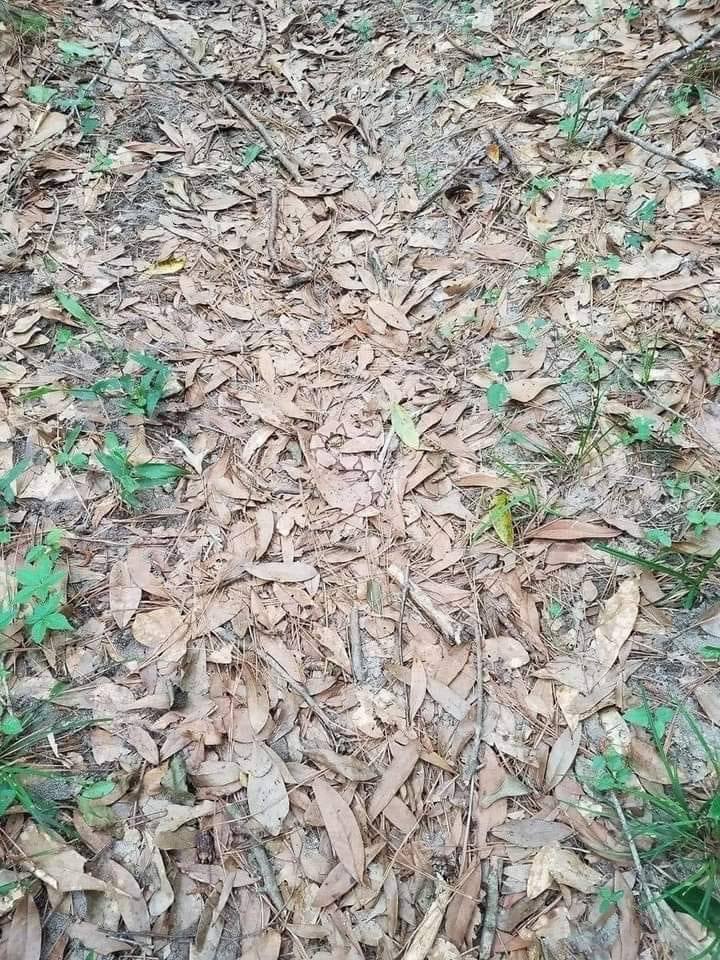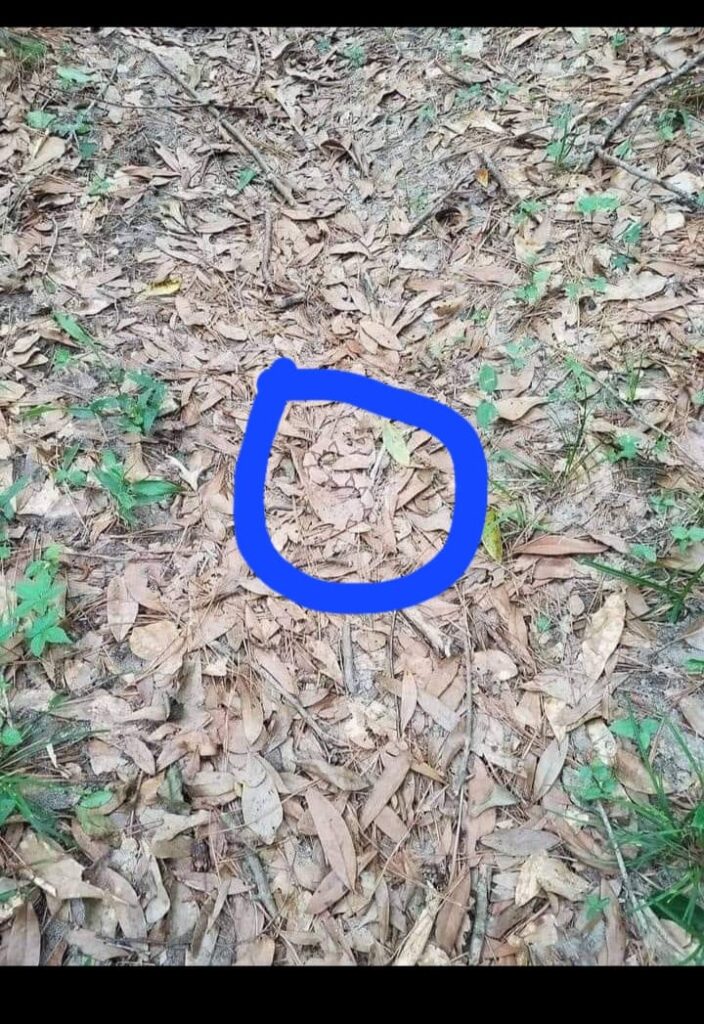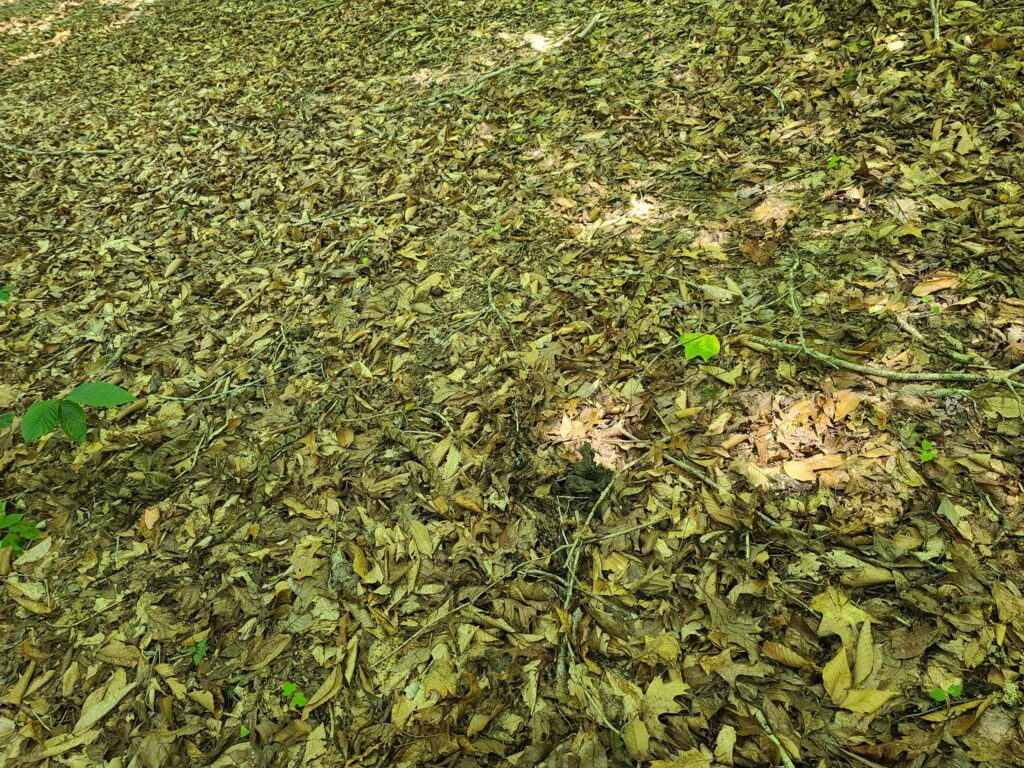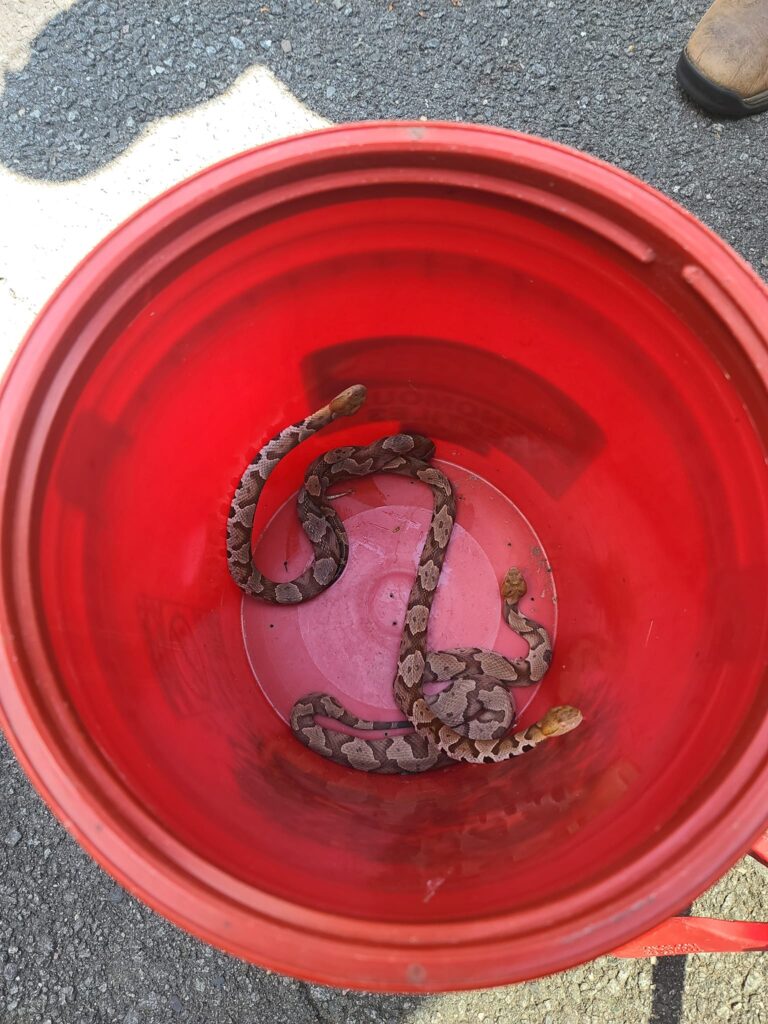
There are instances when we see an image and we just don’t know what it means. Now, a new viral picture has everyone wondering what it conceals.
Read on to learn more about the hidden dangers that surround you.
About five months ago, Missouri Wildlife posted a now-viral Facebook challenge asking the internet to discover what was hiding among the dead leaves.
The post, that’s captioned “This is why you have to watch every step in the woods,” left users puzzled, some insisting it was an optical illusion.
Followers, who asked for help in identifying the mysterious object in the image, commented, “They’re just pulling your leg. There isn’t really a snake there!” Another shared, “Amazing camo! I still haven’t spotted it & I usually can.”

Missouri Wildlife heard the need for assistance and posted another image featuring the snakes. It’s true that “once you see it, you can’t unsee it,” but this user claims, “I sure struck out without your marking it!”

A venomous Copperhead snake, one of the most prevalent in North America, is hiding in the brown leaves on the ground.
They feature triangular, coppery-colored heads and bodies coated in pale or pinkish brown skin wrapped in many hourglass marks, making them dangerous snakes.
When bitten, a copperhead can cause temporary damage to muscular tissue, an attack on the circulatory system, and breathing difficulties because to the hemotoxins in its venom. A copperhead’s bite rarely contains enough venom to kill, and the snake only bites to warn or fight off an attacker.
However, their strong fangs make up for the lack of venom by tearing at the flesh and causing damage.
A bite’s effects can be undone with medical attention.
About 2,920 of the 7,000-8,000 annual snake attacks in the United States are attributable to copperheads, according to studies.
Rather than slither away when confronted, as most snakes do, copperheads freeze and blend into their environment, an amazing but potentially fatal skill.
Because they are so adept at camouflage, predators (both human and nonhuman) who come too close to these snakes are often killed.
A Fairfax, Virginia dog owner recently contacted K2C Wildlife Encounters after discovering three Copperheads in the yard.
When wildlife control finally came, they were able to locate the elusive reptiles thanks to their keen eyes. Later, the rescue team posted two photographs of a snake and challenged people to identify it.
When asked about the first image, a user said, “Need to draw a red hat on it so we can do a Where’s Waldo.” The image in question appears to be lush green grass.
The next picture is of three copperhead snakes in a red bucket.
“Look what happens when you have copperheads in leaves,” K2C Wildlife Encounters wrote in a Facebook post. “Magic, they disappear!”

“Snakes are often demonized in the media, and then myths and urban legends play on those created fears,” Bonnie Keller, K2C Wildlife Encounters cofounder, said. “Snakes of any species are much less likely to cause you harm than a dog, horse, cat [or] even a rabbit.”

Keller recommends that those who live in snake-infested areas educate themselves by reading up on the subject.
“Learn about your local snakes so that you understand what they look like and where they are most likely to be found. Knowledge is power.”
You should always seek medical attention after being bitten by any kind of snake, poisonous or not.
And keep in mind that snakes, however repulsive they may be, serve a crucial ecological function. If you spot one, do not approach it; if it enters your home, call a pest control agency.
The fact that copperhead snakes are so adept at concealment is deeply unsettling.
We both think that the greatest defense is a well-informed offense, so do your research on the local snake population.
Please SHARE this story with Family and Friends!




Leave a Reply